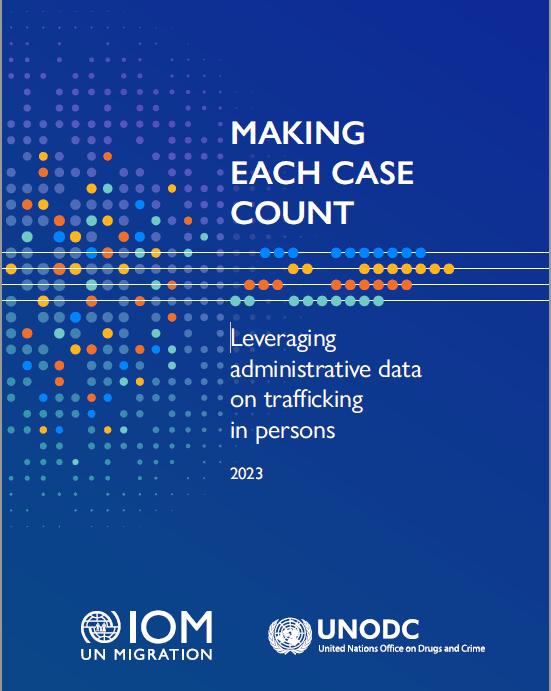
Making each case count – Leveraging administrative data on trafficking in persons
Auteurs : Office des Nations Unies contre la Drogue et le Crime (ONUDC) | Organisation Internationale pour la Migration (OIM)
The purpose of this guidance manual is to support the efforts of governments and other stakeholders to improve data collection, management, sharing and use, so that eventually more high-quality data can be leveraged to inform policy and programming. While the manual will be useful for all stakeholders dealing with administrative data, it specifically targets central government agencies or other organizations with a coordinating role at
the national level (hereinafter referred to as central agencies) that use TIP administrative data from multiple sources to produce evidence to address trafficking in persons. These can be national rapporteur’s offices, ministries, agencies coordinating the national referral mechanism or national statistical offices, among others. The manual outlines useful considerations, describes the pitfalls to avoid, lists best practices and gives concrete examples to help establish (or improve) all data-related processes for national TIP administrative data.
Importantly, it also provides direction on how to use the working version3 of the new International Classification Standard for Administrative Data on Trafficking in Persons most effectively (ICS-TIP). The ICS-TIP, the companion publication to this manual, establishes a new model of classification for key indicators related to TIP administrative data
Thématiques
- Récolter des données sur la traite
- Protection des données
- Systèmes d’information
- Données sur la traite
- Données sur les tendances de la traite
Population Ciblée
- Autorités nationales anti-TEH
- Professionnels en lien avec la lutte contre la traite
Focus géographique
- Monde

